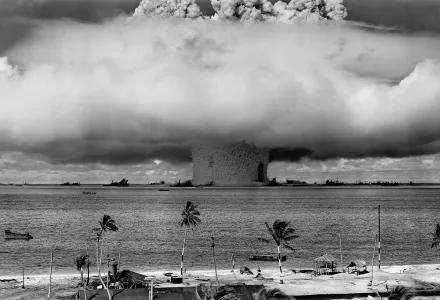The Logic of Affect and the Nuclear Taboo: Limitations of Current Experimental Survey Research
A Project on Managing the Atom (MTA) seminar with Maria Rost Rublee, Associate Professor of International Relations at Monash University.
A Project on Managing the Atom (MTA) seminar with Maria Rost Rublee, Associate Professor of International Relations at Monash University.

A recording of this seminar can be viewed here.
Recent experimental survey work investigating the strength of the nuclear taboo has led to questions about whether this normative prohibition still reduces the likelihood of nuclear use. In this presentation, Maria Rost Rublee discusses how the logic of affect shapes nuclear use decisions, and why limitations in experimental survey research—particularly if that research does not incorporate the logic of affect—may provide results that are unlikely to reflect real-world opinions about nuclear use.
Maria Rost Rublee is an Associate Professor of International Relations at Monash University, with expertise in constructivism, social psychology, nuclear politics, and diversity in security studies. Interest in her work has led to over 20 international talks as keynote or plenary speaker to academics and policymakers. Her current nuclear-related projects include analysis of the second wave of nuclear taboo research, investigation into the social construction of nuclear energy, and examination of Australia’s nuclear futures. Rublee has received substantial competitive grants, including from the United States Institute of Peace, the Canadian Department of National Defence, the Australian Department of Defence, and the Norwegian Ministry of Foreign Affairs. Her work has been published in a variety of international journals, including Contemporary Security Policy, International Studies Review, Comparative Political Studies, and the Nonproliferation Review. Rublee’s book, Nonproliferation Norms: Why States Choose Nuclear Restraint, received the Alexander George Book Award for best book in political psychology, awarded by the International Society for Political Psychology. She is past Chair of the International Security Studies Section of ISA, an editorial board member of International Affairs, Contemporary Security Policy and the Nonproliferation Review, and a former editor of International Studies Perspectives.